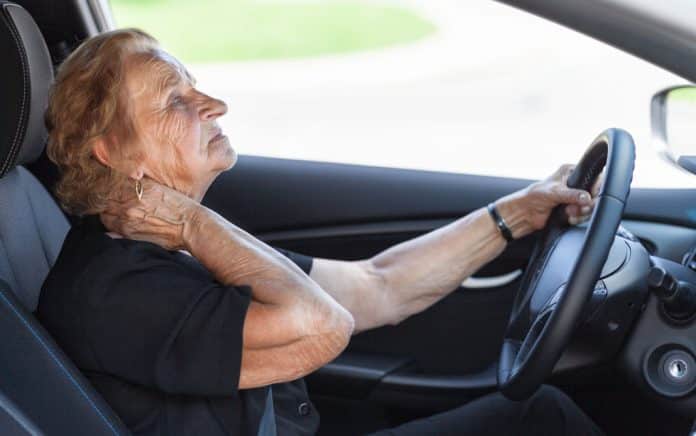
(FinancialHealth.net) – Taking away a family member’s car keys can be a tough decision to make. Many people believe their driving skills are good enough, but the aging process can cause slower reaction times and certain physical changes that can potentially put their lives and others’ lives at risk.
For most older Americans, losing their driving privileges is the same as losing their independence. It can be emotionally devastating or depressing, and those issues must be dealt with. But that doesn’t change the stark reality of the statistics. Since seniors tend to travel fewer miles as they get older, it’s best to compare crash data based on miles driven.
At the age of 60, crash rates start to rise and never come down. By the age of 80, seniors are involved in more accidents than those who are 20-24 and considered somewhat of a high risk group. Specifically, the 80-84 age bracket is involved in 4.2 fatal crashes for every 100 million miles driven, while the 20-24 age bracket is only involved in 3.8.
Just as with taking the keys from a drunk driver, a family member, witnessing a loved one’s mental or physical decline not only must express concern about their driving ability, but have the right and obligation to do something about it.
Ultimately, if you are aware of an impaired driver and do not take their keys away, you could be culpable for them hurting or killing someone in a subsequent accident.
On June 25, 2018, 17 year old Madeline Shershen was struck and killed by an 88 year old driver who police say ran a red light at an intersection in Queens, N.Y. The incident has prompted family and many community members to petition for “mandatory retesting every two years for all drivers age 80 and over” in the state of New York.
Do Regular Assessments
The best way to know if a family member is fit to drive is to test their general driving fitness. When conducting an assessment for your family member’s driving fitness, it’s important to consider the following:
- Monitor their ability to navigate outside the vehicle. If they have problems seeing clearly, finding their way, or operating devices around the house, there is a good chance their driving ability is compromised.
- Check their vehicle for any scrapes, fender benders, or damage.
- Go along with them for a test ride to personally witness how they are driving.
- Assess their health and to determine whether any prescribed medications may affect their driving.
- Check your state law for regulations or restrictions for older drivers, including when they can take a new driver test to officially assess their abilities.
The time to take away the car keys is different for everyone. Depending on health issues, some seniors stop driving at the age of 60 while others drive safely well into their 90s.
Retiring from Driving
Driving is a privilege many seniors started enjoying in their teens and is closely associated with freedom and independence. Most people are not in any hurry to give up freedom and independence and nowadays they don’t have to. If they must retire from driving themselves, immediately help them get up to speed on modern transportation options, like rideshares, Uber and Lyft Concierge.
Above all, make absolutely certain loved ones unfit to drive are not getting behind the wheel where they can hurt themselves or someone else. It’s a life and death issue, not a negotiation. Losing your independence isn’t an easy thing to cope with.
It’s best if you can get through the process of taking the keys from a loved one with as little strain on them and yourself as possible. But, make no mistake, stressful or not, when the keys need to go, you need to take them.
~Here’s to Your Financial Health!
Copyright 2020, FinancialHealth.net

















